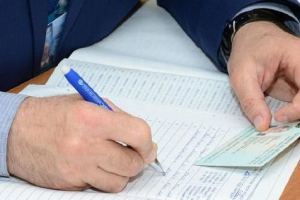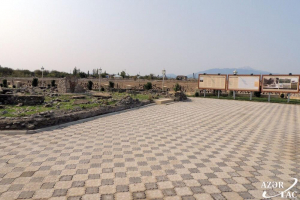


The storm, one of the costliest to hit the United States, has displaced more than 1 million people, with 50 feared dead from flooding in Houston.
Rescuers searched painstakingly through flooded neighborhoods across southeastern Texas on Friday for people stranded by Hurricane Harvey’s deluge as President Donald Trump asked Congress for $7.85 billion in federal disaster relief.
The storm, one of the costliest to hit the United States, has displaced more than 1 million people, with 50 feared dead from flooding that paralyzed Houston, swelled river levels to record highs and knocked out the drinking water supply in Beaumont, Texas, a city of 120,000 people.
The Trump administration in a letter to Congress asked for a $7.85 billion appropriation for response and initial recovery efforts. White House homeland security adviser Tom Bossert told reporters on Thursday aid funding requests would come in stages as more became known about the impact of the storm.
Texas Governor Greg Abbott has said that his state may need more than $125 billion.
Bossert said the Trump administration wanted Congress to pass the disaster relief measure on its own and not add it to other measures, such as the effort to raise the debt ceiling.
The U.S. government has a statutory limit on how much money it can borrow to cover the budget deficit that results from Washington spending more than it collects in taxes. Only Congress can raise that limit.
Trump plans a second visit to the region on Saturday.
Though the sun was out in Houston on Friday and water levels down in many areas, Mayor Sylvester Turner called for voluntary evacuations on the city’s west side. He said already-flooded neighborhoods there may be in greater danger as the Army Corps of Engineers continues to release water into the adjacent Buffalo Bayou to prevent dam and levee failures.
About 80 miles (130 km) to the east, the Neches River, which flows into Beaumont and nearby Port Arthur, was forecast to crest early on Saturday well above flood levels, the National Weather Service said.
“It (the Neches River) is about 7 feet (2.1 meters) above the record and it will continue to remain at or be near that high for about the next week. This flooding poses an ongoing threat,” Texas Governor Abbott told reporters.
Rescue officials were still working to determine the scope of flooding, said Rodney Smith, deputy chief of the Cedar Hill, Texas, Fire Department.
The storm’s impact played out in ways large and small, a full week after Hurricane Harvey slammed into the Texas coast Friday night as the strongest hurricane to hit the state in more than 50 years.
At the Hollywood Community Cemetery in Orange, floodwaters had caused three coffins to pop out of concrete vaults. One belonged to Dewey Mosby, who died in 2003 at the age of 82.
“He won’t stay put,” said Ron Kendall, 63, who helps maintain the cemetery and said he knew Mosby well in life. Kendall had helped direct Mosby’s coffin back to its resting place after the 2008 floods from Hurricane Ike and again during floods in 2016.
“Everybody knows where Mr. Mosby goes now because he always comes up,” Kendall said.














